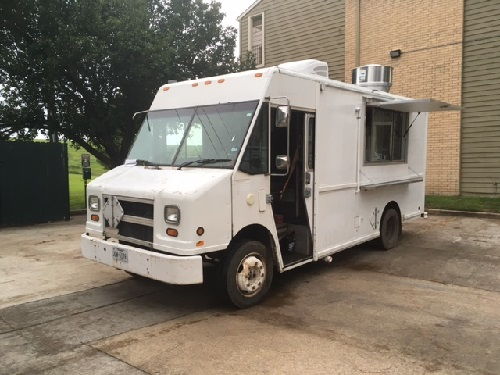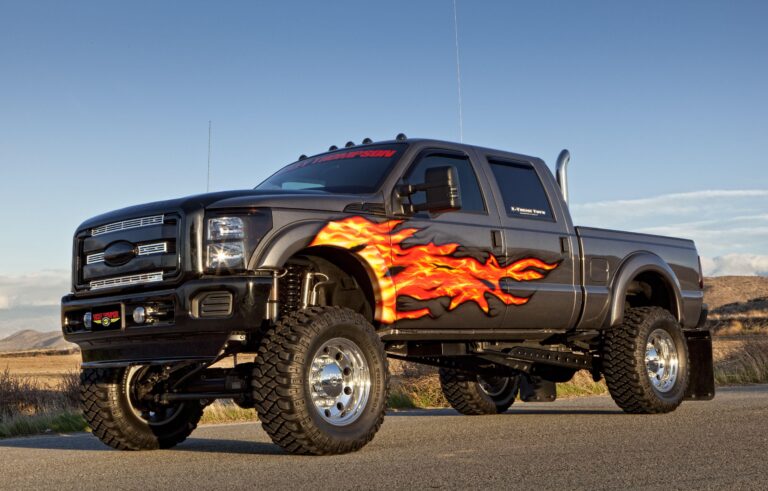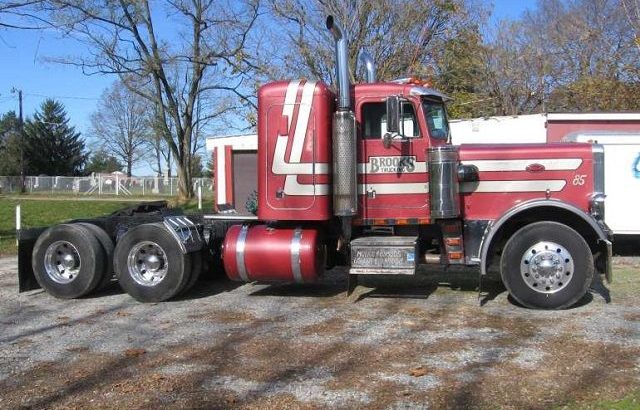U-Haul Car Trailer Rental: Your Comprehensive Guide to Hassle-Free Vehicle Transportation
U-Haul Car Trailer Rental: Your Comprehensive Guide to Hassle-Free Vehicle Transportation cars.truckstrend.com
Moving a vehicle can be a complex undertaking, whether it’s relocating cross-country, transporting a non-drivable car, or taking a classic for a show. While professional shipping services exist, they often come with hefty price tags and less control over timing. This is where U-Haul car trailer rental emerges as a game-changer, offering a flexible, cost-effective, and empowering solution for individuals looking to transport their vehicles safely and efficiently. U-Haul, a household name in DIY moving, extends its expertise to vehicle transport through its robust fleet of car trailers, providing the tools you need to take control of your vehicle’s journey.
This comprehensive guide will delve into every aspect of U-Haul car trailer rental, from understanding your options and navigating the rental process to ensuring a safe and successful tow. Whether you’re a seasoned DIY mover or a first-timer, this article will equip you with the knowledge and confidence to make your vehicle transport experience as smooth as possible.
U-Haul Car Trailer Rental: Your Comprehensive Guide to Hassle-Free Vehicle Transportation
The Benefits of Choosing U-Haul Car Trailer Rental
Opting for a U-Haul car trailer offers a multitude of advantages over alternative transport methods:
- Cost-Effectiveness: Renting a trailer is often significantly cheaper than hiring a professional auto transport service, especially for local moves or when you’re already renting a U-Haul truck. You save on labor costs and potentially long-distance shipping fees.
- Control and Flexibility: You dictate the schedule, route, and pace of your move. No waiting for a shipping company’s pick-up or delivery windows. You have direct control over your vehicle throughout the entire process.
- Accessibility and Availability: With thousands of locations across North America, U-Haul trailers are readily available, often allowing for same-day rentals or convenient one-way options to suit your travel plans.
- Safety and Reliability: U-Haul trailers are designed with safety in mind, featuring sturdy construction, integrated tie-downs, and braking systems. The company maintains its fleet rigorously to ensure reliability.
- Versatility: Whether you need to move a small sedan, a large SUV, or a classic car, U-Haul offers different trailer types to accommodate a wide range of vehicle sizes and weights.
- Empowerment: Taking on the task yourself can be a rewarding experience, giving you peace of mind knowing your vehicle is in your direct care.

Understanding Your Options: Auto Transport vs. Tow Dolly
![]()
U-Haul primarily offers two types of car trailers, each suited for different needs and vehicle types:
1. U-Haul Auto Transport
The U-Haul Auto Transport is a full car trailer designed to lift all four wheels of the towed vehicle off the ground.
- Features:

- Full platform with integrated ramps.
- Heavy-duty tie-down straps for all four wheels.
- Low loading deck for easier access.
- Equipped with surge brakes for added safety.
- Best For:
- Long-distance moves, especially cross-country.
- Vehicles with sensitive drivetrains (e.g., all-wheel drive, classic cars, luxury vehicles) that shouldn’t be towed with wheels on the ground.
- Vehicles that are non-drivable or have mechanical issues.
- Ensuring minimal wear and tear on the towed vehicle.
- Requirements:
- Heavier towing vehicle (truck or large SUV) due to the combined weight of the trailer and the towed vehicle.
- Towing vehicle must have a sufficient towing capacity and a Class III or IV hitch.
2. U-Haul Tow Dolly
The U-Haul Tow Dolly is a two-wheel trailer that lifts the front two wheels of the towed vehicle off the ground, leaving the rear two wheels on the pavement.
- Features:
- Compact and lighter than an auto transport.
- Ramps for driving the front wheels onto the dolly.
- Adjustable straps to secure the front wheels.
- Best For:
- Shorter distances or local moves.
- Front-wheel-drive vehicles.
- Vehicles that are drivable but need to be towed (e.g., saving mileage on a car).
- Considerations:
- For rear-wheel-drive or all-wheel-drive vehicles, the drive shaft may need to be disconnected or the vehicle loaded backward (with front wheels off the ground) to prevent transmission damage. Always consult your vehicle’s manual or a mechanic.
- The towed vehicle’s rear wheels will accumulate mileage and wear.
- Requirements:
- Towing vehicle needs a Class I, II, III, or IV hitch with a minimum towing capacity. Lighter towing vehicles may be suitable compared to an auto transport.
How to Rent a U-Haul Car Trailer: A Step-by-Step Guide
Renting a U-Haul car trailer is a straightforward process designed for convenience.
1. Plan and Research
- Determine Your Needs: Auto Transport or Tow Dolly? Consider your vehicle type, distance, and budget.
- Check Compatibility: Use U-Haul’s online "Trailer & Towing Guide" to ensure your towing vehicle can safely tow your towed vehicle. This tool is crucial and will ask for make, model, and year for both vehicles.
- Gather Information: Have the dimensions, weight, and drivetrain type of the vehicle you plan to tow readily available.
2. Reserve Your Trailer
- Online is Best: Visit U-Haul’s official website (UHaul.com) to get an instant quote and make a reservation. This allows you to compare prices and check availability for your desired dates and locations.
- Provide Details: Input your pick-up and drop-off locations, dates, and the specifics of both your towing and towed vehicles.
- Confirm Reservation: You’ll receive a confirmation email with your reservation details.
3. Pick Up the Trailer
- Required Documents: Bring your valid driver’s license, reservation confirmation, and a payment method.
- Inspection: Before leaving the U-Haul location, thoroughly inspect the trailer with a U-Haul representative. Check tires, lights, ramps, and tie-downs for any damage or issues. Report anything immediately.
- Hitching and Safety Briefing: The U-Haul team will assist you in hitching the trailer to your towing vehicle, ensuring proper connection, safety chains, and electrical hookup for lights and brakes (if applicable). They will provide a brief on safe towing practices.
4. Loading Your Vehicle
- Flat and Level Ground: Always load and unload on a flat, level surface away from traffic.
- Follow Instructions: U-Haul provides clear loading instructions. For auto transports, drive the vehicle slowly up the ramps until it’s centered on the platform. For tow dollies, drive the front wheels onto the dolly until they’re snug against the stops.
- Secure Thoroughly: Use the provided heavy-duty straps to secure all four wheels (auto transport) or the front two wheels (tow dolly). Ensure the straps are tight and re-check them after driving a short distance.
- Weight Distribution: For optimal stability, ensure the towed vehicle is centered on the trailer, distributing weight evenly.
5. Driving with a Trailer
- Reduced Speed: Drive slower than usual. U-Haul recommends a maximum speed of 55 mph (88 km/h) when towing.
- Increased Braking Distance: Allow significantly more space for braking, as the added weight increases stopping distance.
- Wider Turns: Make wider turns to accommodate the trailer’s length and avoid hitting curbs or other obstacles.
- Monitor Mirrors: Constantly check your side mirrors for sway or issues with the trailer.
- Regular Checks: Periodically pull over safely to check tire pressure on both the towing vehicle and trailer, and re-tighten tie-down straps.
6. Returning the Trailer
- Designated Location: Return the trailer to the agreed-upon U-Haul location at or before the scheduled time.
- Inspection: A U-Haul representative will inspect the trailer for damage.
Important Considerations for Safe Towing
Towing a vehicle is a serious responsibility. Adhering to these considerations is paramount for safety.
- Towing Vehicle Compatibility and Capacity:
- Towing Capacity: Your towing vehicle must have a Gross Combined Weight Rating (GCWR) that exceeds the combined weight of your towing vehicle, the trailer, and the towed vehicle. Never exceed your vehicle’s stated towing capacity.
- Hitch Class: Ensure your towing vehicle has the correct hitch class (e.g., Class III or IV for auto transports) and a properly installed hitch ball of the correct size.
- Braking System: Auto transports have surge brakes. Ensure your towing vehicle’s brakes are in excellent condition.
- Tires: Ensure your towing vehicle’s tires are properly inflated and in good condition.
- Insurance:
- Towing Vehicle Insurance: Your personal auto insurance may or may not cover damage to a rented trailer or the towed vehicle. Check with your insurance provider.
- U-Haul Coverage: U-Haul offers supplemental coverage options (e.g., Safemove® or Safetow®) that can provide protection for the trailer, your vehicle, and liability. It’s highly recommended to consider these.
- Licensing and Regulations:
- Driver’s License: A standard driver’s license is typically sufficient for renting U-Haul car trailers in most states and provinces, as they are not classified as commercial vehicles.
- State/Provincial Laws: Be aware of varying speed limits, weight restrictions, and specific towing laws in the states or provinces you’ll be traveling through.
- Pre-Trip Safety Checks:
- Lights: Test all trailer lights (brake, turn signals, running lights) before starting your journey.
- Tire Pressure: Check the tire pressure on both the towing vehicle and the trailer.
- Connections: Verify the hitch connection, safety chains, and electrical hookup are secure.
- Fluid Levels: Ensure your towing vehicle has adequate oil, coolant, and brake fluid.
Estimated U-Haul Car Trailer Rental Prices (Subject to Change)
It’s crucial to understand that U-Haul rental prices are highly variable. They depend on numerous factors including:
- Location: Pick-up and drop-off cities.
- Availability: Demand for trailers in your area.
- Duration: Daily, weekly, or one-way rental.
- Distance: For one-way rentals, the mileage between locations is a primary factor.
- Time of Year: Peak moving seasons (summer) often see higher prices.
- Specific Equipment: Auto Transport vs. Tow Dolly.
The table below provides estimated ranges for common rental scenarios. Always obtain an exact quote directly from U-Haul.com for your specific needs.
| Rental Type & Duration | U-Haul Tow Dolly (Estimated Range) | U-Haul Auto Transport (Estimated Range) | Notes |
|---|---|---|---|
| Local Rental (Daily) | $40 – $60 | $60 – $80 | Ideal for short-distance moves within a city or region. Return to the same location. |
| Local Rental (Weekly) | $150 – $250 | $250 – $350 | For longer local projects or when you need the trailer for several days. Return to the same location. |
| One-Way Rental (Short Dist.) | $100 – $250 | $150 – $350 | Typically for distances up to a few hundred miles. Prices vary significantly by demand and route. |
| One-Way Rental (Medium Dist.) | $250 – $500 | $350 – $700 | For distances like 500-1000 miles. Prices influenced by origin/destination balance. |
| One-Way Rental (Long Dist.) | $400 – $800+ | $500 – $1200+ | For cross-country moves (1000+ miles). Can fluctuate wildly based on supply/demand across states. |
| Optional Coverage (e.g., Safetow®) | ~$10 – $20/day | ~$15 – $25/day | Highly recommended for peace of mind. Covers damage to trailer and potentially towed vehicle/liability. Check exact policy details. |
Note: These prices are estimates for rental fees only and do not include fuel costs, insurance, or any additional equipment you might need.
Tips for a Smooth U-Haul Car Trailer Experience
- Book in Advance: Especially during peak moving seasons (summer, end of month), reserve your trailer well in advance to ensure availability and potentially better rates.
- Verify Hitch Ball Size: Ensure your towing vehicle has the correct hitch ball size (usually 2" or 2-5/16") as required by the U-Haul trailer.
- Double-Check Loading: After loading, walk around the trailer multiple times to ensure the vehicle is centered, straps are tight, and nothing is loose.
- Practice Driving: If you’re new to towing, find an empty parking lot to practice turns, braking, and backing up before hitting the open road.
- Pack Smart: If your towed vehicle contains personal items, secure them properly to prevent shifting during transit.
- Fuel Efficiency: Expect a significant drop in your towing vehicle’s fuel efficiency due to the added weight and wind resistance. Factor this into your budget.
- Roadside Assistance: U-Haul offers 24/7 roadside assistance, which can be invaluable if you encounter an issue on the road.
Potential Challenges and Solutions
While generally smooth, challenges can arise during a U-Haul car trailer rental.
- Challenge: Trailer Availability:
- Solution: Book early, be flexible with pick-up/drop-off dates or locations, and consider calling local U-Haul centers directly.
- Challenge: Loading Difficulties:
- Solution: Watch U-Haul’s official loading videos, follow instructions precisely, and ensure you’re on level ground. Don’t hesitate to ask for assistance from a second person.
- Challenge: Vehicle Compatibility Issues:
- Solution: Use U-Haul’s online towing guide before reserving. If your vehicle isn’t compatible, you may need to reconsider your towing vehicle or explore other transport options.
- Challenge: Sway or Instability During Towing:
- Solution: This often indicates improper weight distribution. Pull over safely, re-check the towed vehicle’s position on the trailer, and ensure all straps are secure. Reduce speed significantly. If issues persist, contact U-Haul roadside assistance.
- Challenge: Flat Tire on Trailer:
- Solution: U-Haul trailers are maintained, but flats can happen. Their roadside assistance can help. Always carry a working cell phone.
Frequently Asked Questions (FAQ)
Q1: Can I rent a U-Haul car trailer one-way?
A1: Yes, U-Haul specializes in one-way rentals, allowing you to pick up a trailer in one location and drop it off at another U-Haul center across the country.
Q2: Do I need special insurance to rent a U-Haul car trailer?
A2: While your personal auto insurance might offer some coverage, it’s highly recommended to purchase U-Haul’s supplemental Safetow® coverage. This can protect you from financial liability for damage to the trailer, your towed vehicle, and third-party property. Always check with your personal insurance provider.
Q3: What’s the difference between an Auto Transport and a Tow Dolly?
A3: An Auto Transport is a full trailer that lifts all four wheels of the towed vehicle off the ground, ideal for long distances or AWD/RWD vehicles. A Tow Dolly lifts only the front two wheels, leaving the rear two on the ground, suitable for shorter distances or FWD vehicles.
Q4: What kind of vehicle can I tow with a U-Haul car trailer?
A4: U-Haul trailers can tow a wide range of passenger vehicles, from small cars to large SUVs and trucks, provided they meet the weight and size requirements of the specific trailer type. Use U-Haul’s online towing guide to verify compatibility for your specific make and model.
Q5: What kind of vehicle do I need to tow with?
A5: Your towing vehicle must have a sufficient towing capacity, a properly installed hitch (Class I-IV depending on the trailer), and be heavy enough to safely manage the combined weight of the trailer and the towed vehicle. U-Haul’s system will guide you on compatibility.
Q6: Are there mileage charges for U-Haul car trailer rentals?
A6: For one-way rentals, the price is typically a flat rate based on the distance between pick-up and drop-off locations, and no separate per-mile charge applies. Local rentals are usually flat daily or weekly rates.
Q7: How old do I have to be to rent a U-Haul car trailer?
A7: You must be at least 18 years old with a valid driver’s license to rent a U-Haul car trailer.
Conclusion
U-Haul car trailer rental offers an unparalleled blend of affordability, convenience, and control for anyone needing to transport a vehicle. By understanding the different trailer types, meticulously planning your rental, and adhering to crucial safety guidelines, you can transform what might seem like a daunting task into a manageable and even empowering experience. From the initial reservation to the final drop-off, U-Haul provides the tools and support to ensure your vehicle arrives safely at its destination. Take the wheel of your vehicle transport needs – U-Haul is ready to help you tow with confidence.






